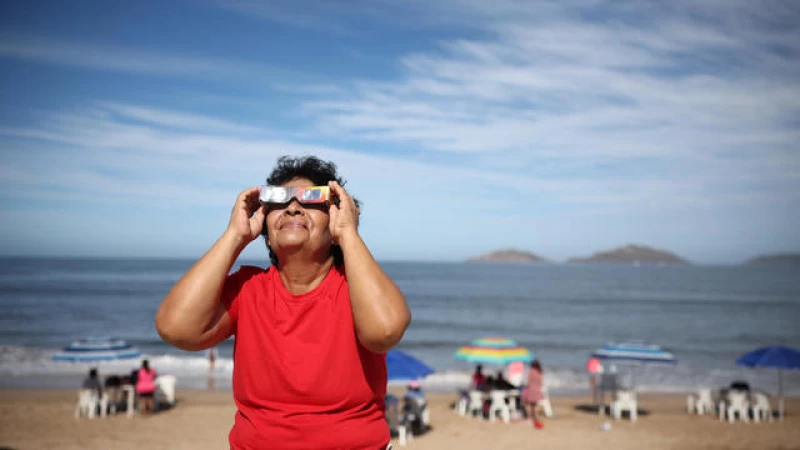As millions of spectators across the U.S. gather to watch Monday's total solar eclipse, some are concerned over radiation, but NASA has debunked myths around the eclipse.
The moon crosses in front of the sun during the eclipse, casting a shadow on Earth's surface that blocks out the light from the sun. Only the sun's outer atmosphere — the corona — will be visible during the peak of the eclipse.
One common myth around the eclipse is the idea that the total solar eclipse produces harmful rays that can cause blindness, according to NASA. The space agency says that when the moon covers the sun, the corona emits electromagnetic radiation.
"Being a million times fainter than the light from the sun itself, there is nothing in the coronal light that could cross 150 million kilometers of space, penetrate our dense atmosphere, and cause blindness," NASA wrote in a post about eclipse myths.
Still, it's not safe to look at the solar eclipse without special glasses.
Another misconception debunked by NASA is the belief that pregnant individuals should avoid watching an eclipse. NASA clarifies that this misconception stems from the false notion that harmful radiations are emitted during a total solar eclipse.
Aside from the electromagnetic radiation from the sun's corona, NASA highlights another form of radiation that travels from the sun to the Earth. These are neutrinos, particles that originate deep within the solar interior and travel unimpeded into space.
"This is completely harmless and poses no danger to you, or to a developing fetus if you are pregnant," NASA reassures.
Another prevalent eclipse myth is the false belief that radiation during a total solar eclipse can contaminate any food prepared during the event.
NASA explains that throughout history, individuals fearful of eclipses have fabricated stories about the potential harm they may cause.
"If someone happens to get food poisoning from potato salad during an eclipse, some may wrongly attribute the incident to the eclipse itself, despite the fact that numerous other people at the same location remain unaffected," NASA points out.







